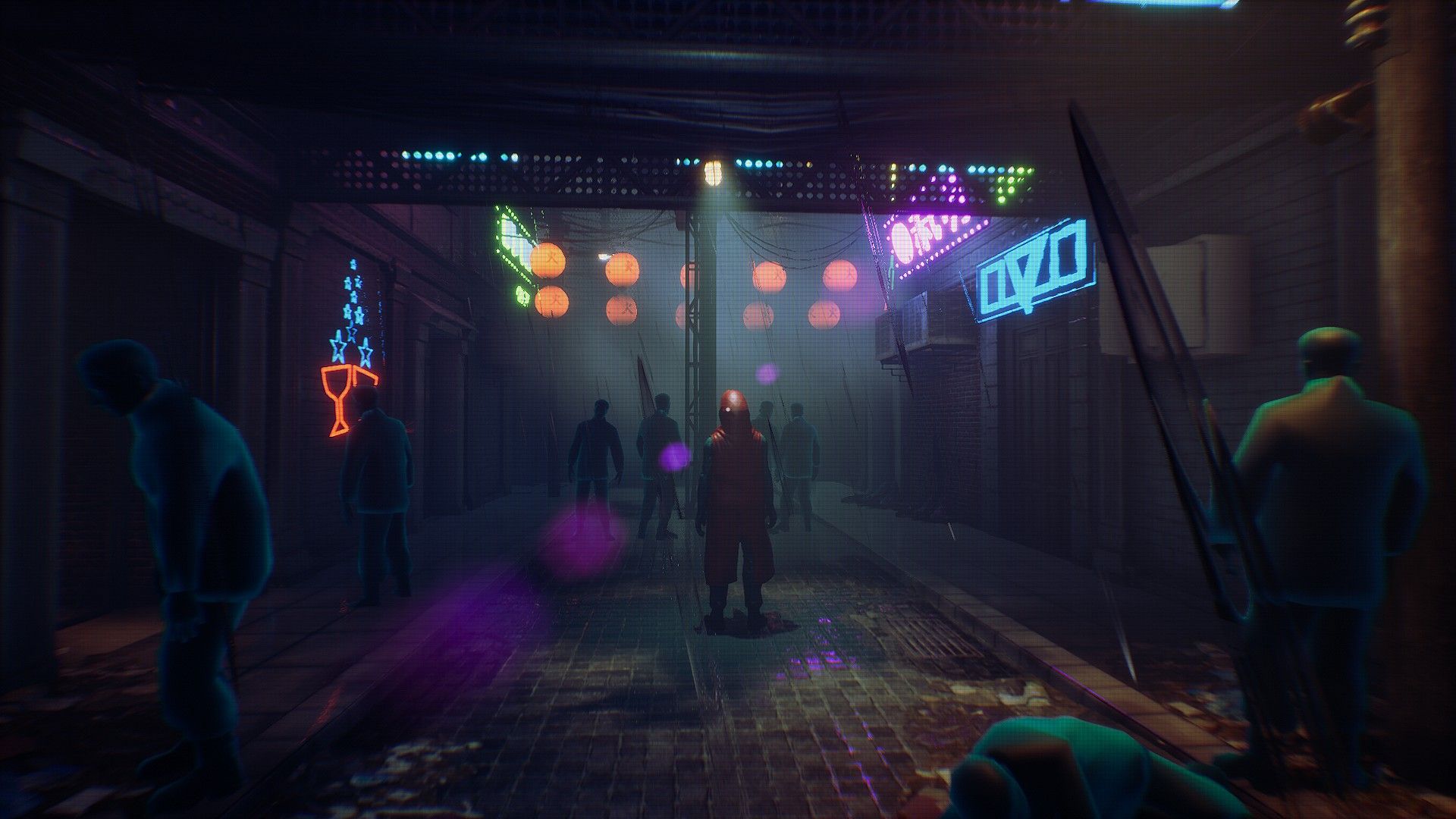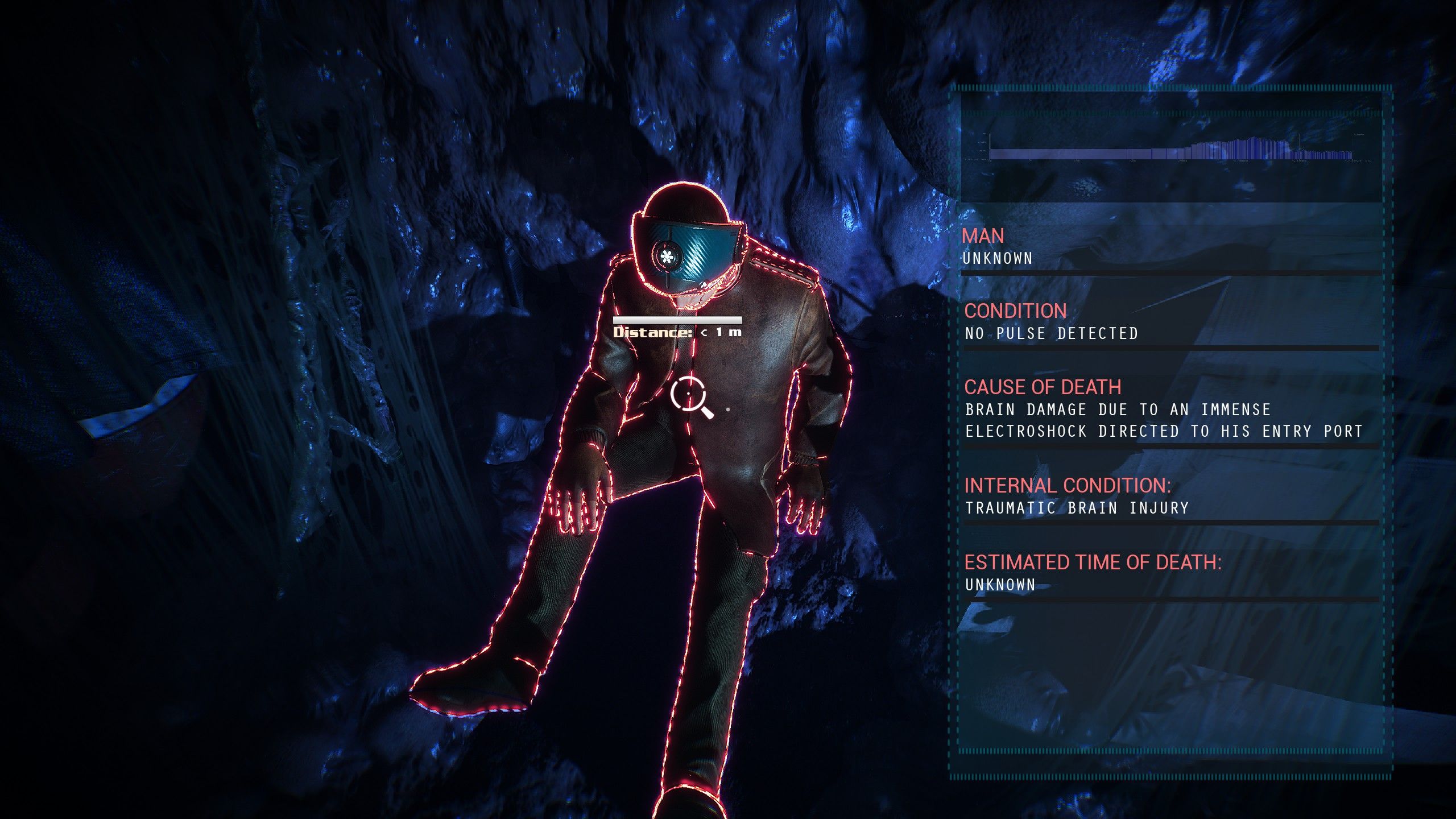The works of H.P. Lovecraft have been extremely influential in the world of horror. Whether via fiction, film, or video game, his cosmic horror stories have been a major inspiration for plenty of other works. Transient, from developer Stormling Studios and publisher Iceberg Interactive, combines Lovecraftian horror with cyberpunk themes to middling effect, but it's a worthwhile exploration all the same.
Transient takes the form of an adventure puzzle game with some horror trappings. The game is set in the far future within the domed city of Providence, which has been protected from the destruction that covers most of the planet. Transient's setting is one of vast technological advancements, but within a culturally strange landscape that entwines bizarre ritual and herbalism with complex cybernetic implants. Somewhere in the darkness, something is brewing.
Stormling has done a tremendous job of blending Transient's cyberpunk elements with cosmic horror, which is no mean feat given how different the genres can be in terms of scope. The game's plot is very much Lovecraftian by design, but thematically Transient dives into ideas of transhumanism, a key component of the cyberpunk genre that has sometimes been missed by creators who only have a surface level understanding of what cyberpunk means.
In spite of its retrofuturistic aesthetic, with bulky electrical devices littered around its game world, Transient also manages to convey some modern fears as well. The core cast members of Transient are locked in their own physical spaces, only leaving when absolutely necessary due to abstract and unseeable fears of the outside, while losing themselves in cyber worlds called Virtual Enclaves where interaction feels real but isn’t. It's hardly far-fetched given the year that 2020 has turned out to be.
Visually, Transient works extremely well. The game is full of deliberate graphical glitches akin to SOMA that skitter across the screen, with flickering overlays that pop up when the player users their PHI augmented reality device to hack systems and scan areas. It's not perfect, with character models that look more than a little awkward, but the overall design is solid.
Those expecting a complex gameplay system will come away disappointed, however. Transient is varied but basic, generally consisting of first person exploration of linear environments with occasional puzzles and hacking mini-games. There are some more action-centric moments, such as a game-within-a-game set in a classic survival horror title or taking part in a VR shootout in cyberspace, but Transient is predominantly about the story.
It's here were Transient begins to struggle, though. Initially its narrative works quite well, with the player trying to uncover the history and context of an underground hacking group they have been involved with, but towards the end the story begins to become less engaging. By its finale, the game becomes a little too twisted within its own lore and loses its strength. In part this is down to the way that Transient tells its cosmic horror story. Characters will explain a little too much to the player at regular intervals, sucking out some of the potential fear and paranoia that the story could pull together. Transient could have done with a little more space - it's a relatively brief game - but even so other short titles like the excellent and chilling Observation have managed to get the balance right.
At its core, Transient is a decent game with some avoidable issues. The title has some extremely strong visual elements and powerful thematic ties to the genres it loves, and as such fans of cyberpunk and Lovecraftian horror will find things to enjoy here. However, its narrative feels quite sluggish and convoluted, lessening its overall impact.
Transient is out now for PC. Screen Rant was provided with a PC download code for the purposes of this review.



